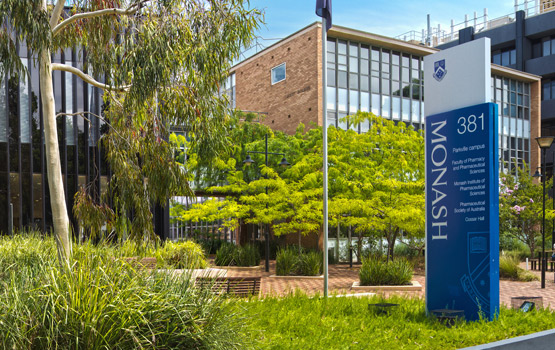Monash University venture nominated for international Science Start-Up Breakthrough of the year award
Jupiter Ionics, a Monash University spin-out powering the green ammonia revolution, has been shortlisted as one of 25 global ventures to pitch for the Science Breakthrough Of The Year Award at the Falling Walls Science Summit in Berlin this year.
Around 175 million tons of ammonia is produced globally per year, mostly for use as fertiliser, employing an energy-intensive, century-old industrial process that produces about two tonnes of CO2 for every tonne of ammonia. Currently, the industry is responsible for about two per cent of global carbon emissions.
Monash University researchers, led by Professor Doug MacFarlane, developed a novel process to make ‘Green Ammonia’ using water, air, and renewable energy. This has the ability to revolutionise the world by decarbonizing the global agriculture and energy sectors. The research was commercialised by Monash University through the formation of the startup company Jupiter Ionics.
Jupiter Ionics has been recognised by the Germany-based Falling Walls Foundation for its pioneering work in scaling up the process developed by Professor MacFarlane to speed the global transition to net zero emissions.
The Company has been invited to be part of the Falling Walls Science Summit, a leading international, interdisciplinary and intersectoral forum for scientific breakthroughs and science dialogue between global science leaders and society. The Summit takes place every year from 7–9 November in Berlin, commemorating the fall of the Berlin Wall.
Jupiter Ionics Co-Founder, Sir John Monash Distinguished Professor from Monash University’s School of Chemistry, Doug MacFarlane, said it was rewarding to see the commercial potential of this breakthrough science acknowledged in this way.
“The quality of our underlying science has already been reflected in its publication in journals including Science and Nature. Our work with Jupiter Ionics to scale up the technology and deploy it commercially will ensure that its impact is felt far more broadly, and make a significant contribution to mitigating climate change,” Professor MacFarlane said.
Jupiter Ionics was selected as one of 25 winners for the Falling Walls Venture 2022 award out of 131 submissions from 34 countries. The finalists were selected based on solving some of the most pressing challenges of the day with scientific findings converted to entrepreneurial solutions.
Jupiter Ionics CEO Dr Charlie Day welcomed the prestigious honour and said the Company’s vision is to accelerate the shift to a future economy powered by carbon-neutral green ammonia.
“Our team is energised by the challenge of scaling up our technology, and giving the world a new pathway to reduce carbon emissions at scale,” Dr Day said.
“We also hope that our success at Falling Walls will inspire confidence in other researchers around the country that Australian deep tech commercialisation can compete with the world’s best.”
Jupiter Ionics has successfully secured an exclusive licence for development of this world-leading electrochemical technology for the production of green ammonia and has also recently received financing of $2.5 million to support the venture.
Monash University Chief Commercialisation Officer Dr Alastair Hick said from making game-changing IVF discoveries globally accessible, supporting the production of mRNA vaccines, boosting the development of green ammonia, to revolutionary developments in renewable energy, the University is committed to creating positive change in the world.
“Our role as a university is more than excellent research and teaching, we’ve been translating game-changing research into impactful commercial outcomes for more than 60 years. We’re doing the heavy lifting in commercialisation and fostering a talent pool that is powering Australian industries and economic growth,” Dr Hick said.
“This is the second Monash spin-out to have been selected as a global science break-through finalist at Falling Walls, recognising our successful commercialisation of leading-edge science, and I’m sure there will be many more in years to come.”
Jupiter Ionics is currently incorporating its technology into a range of prototype devices, and plans to have early field trials underway in 2023.
To learn more about Jupiter Ionics, please visit: https://www.jupiterionics.com/

